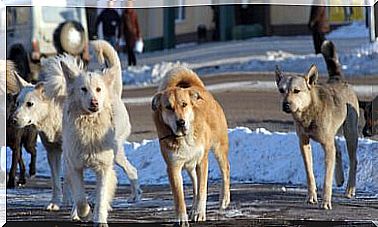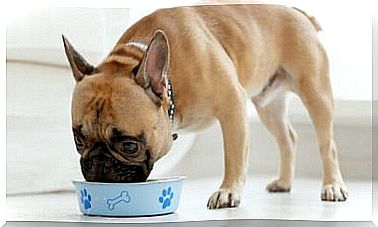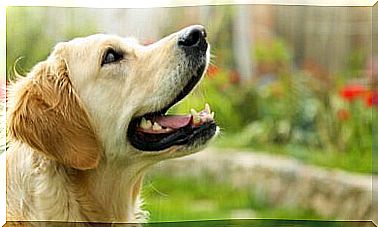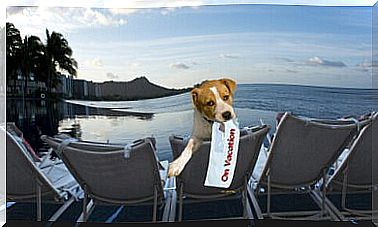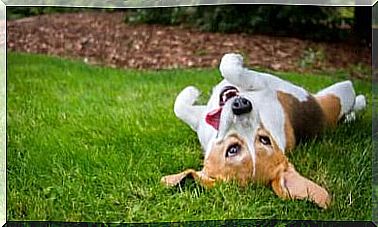Smells Dogs Hate

Throughout our history, people have used the dog’s strong sense of smell for hunting and hunting. However, dogs’ sense of smell can also be used for much more than that. For example, you can take advantage of your dog’s great sense of smell, through the smells dogs hate, to prevent him from being in certain spaces or from climbing on your furniture.
While it doesn’t sound very good, this is still an excellent way to dissuade your dog without having to resort to reprimands or punishment. In time, he himself will relate the unpleasant aroma to situations or objects and will keep away.
Smells that dogs hate
citrus
Most dogs hate citrus smells, especially if they are concentrated. Therefore, smells like lemon, orange or lime will make them disappear in seconds.
Fortunately for you, most people like these smells because they relate them to fresh things. So it won’t be a problem for you to spray extracts on the furniture you want your dog to move away from, or leave some orange or lemon peels on the chairs to prevent your dog from damaging them.
The best thing about this strategy is that despite being a good “dog repellent”, this citrus preparation is completely harmless to them.
Something you can do is extract some lemon juice and mix it with some water. This way you can use it as a spray and spray it almost anywhere and it will work as a repellent.
Consider that citrus can affect some plants or stain fabrics, if exposed to the sun, so be well informed before using it on an object or surface.
It is worth clarifying that the taste buds can be polite, and if you get your dog used to smelling or consuming citrus, most likely they will stop bothering you.
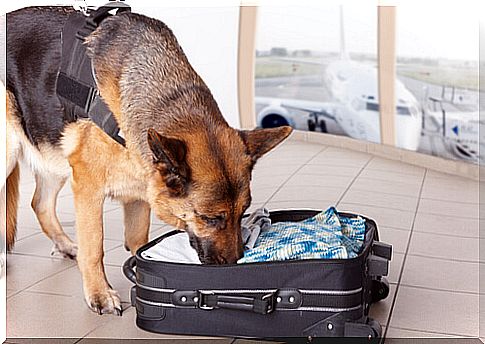
Pepper is one of the smells dogs hate
Pepper, especially one that is very spicy, has a component that is irritating to a dog’s nose. For this reason, dogs try to avoid all objects that smell of pepper.
Chili pepper powder is very good to be used in places where you do not want your dog to enter, but it is best to sprinkle it in places that are not within his reach, to prevent the powder from getting into his nose, mouth. or eyes.
Keep in mind that when handling the chili, you should wash your hands very well, as any contact of the pepper with any mucosa, whether yours or your dog’s, can cause irritation.
Lastly, no matter what you are told, even if it is dissolved in water, never directly spray your dog with this product, as this can cause an unnecessarily painful experience on your furry four-legged.
Vinegar
Due to the sensitive sense of smell of dogs, vinegar can become unbearable for them. So you can use vinegar by putting it in open containers. However, the scent of vinegar is not something you want to have on your furniture or in your home, so vinegar is recommended especially for outdoor environments and to protect your plants from dogs and cats.
Alcohol
Most dogs don’t like the aroma of alcohol, perhaps because the aroma is too strong.
It is not recommended to directly use alcohol on surfaces (or your pet). What you can do is soak cotton balls and place them where you want your dog to stay away.
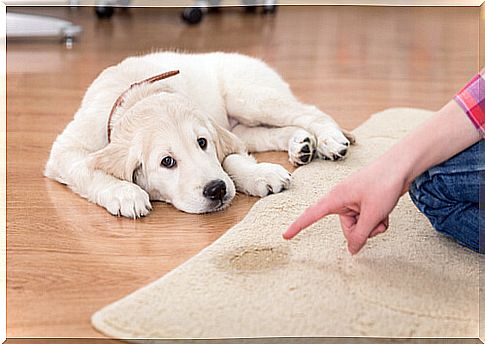
Ammonia is one of the smells dogs hate
Opinions about ammonia are divided: while some say it works as a repellent, other sources say that the scent of ammonia causes dogs to mark their territory in the areas where you sprayed it.
This is because ammonia has an aroma similar to urine, although much more concentrated. However, this product can be very harmful to dogs and humans, so we do not recommend its use, not even outdoors.
